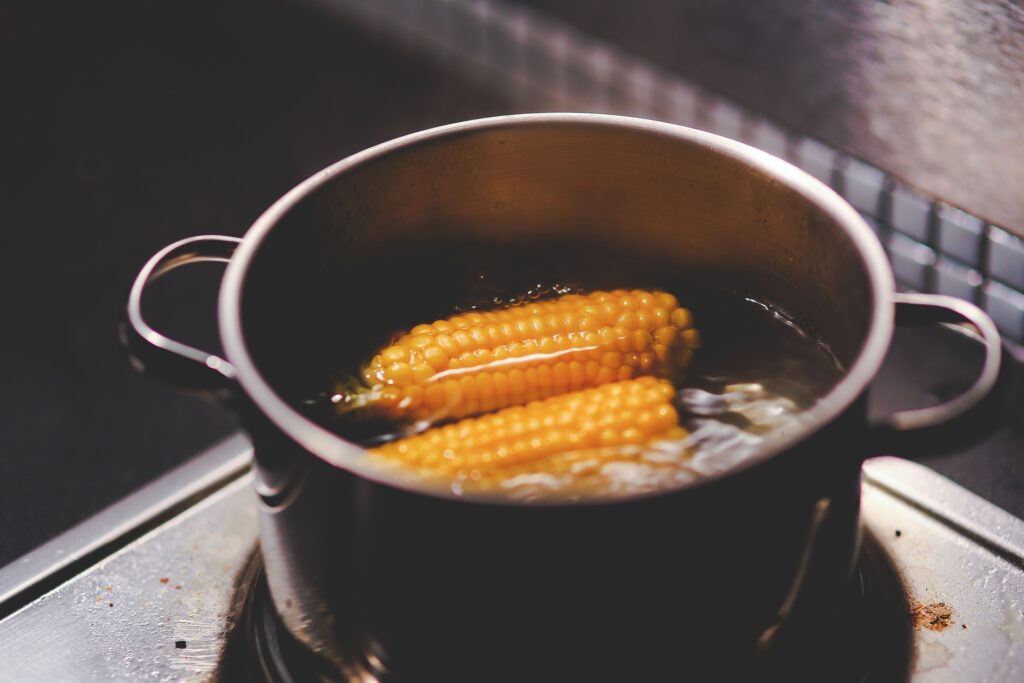The success of a great meal is down to a number of factors. For a start, using correct, good quality ingredients – the fresher the better. Next, having an appreciation of flavours and seasonings, so that you get the right balance of taste. And timing is always a big factor. Bringing all the components together at the point you are ready to serve can sometimes be tricky, leading to over or undercooked food.
Assuming you’ve got all these factors spot on, you should be on the point of serving a dish to remember. Indeed, it may all be second nature to you!
Oh, but there’s one other thing you may have overlooked. The water.

In order to get the best from your culinary activities, the water quality has a really key role to play in determining the outcome. Not just the water you use in cooking and heating the ingredients – but also the water you have access to for washing and preparing the food. This applies equally to hot or cold dishes.
In the same way that you wouldn’t use half rotten, out-of-date vegetables or rancid meat, the same applies to water. As an example, why would you want to subject lovely fresh, organic food to water that is full of impurities and heavily chlorinated? As our tap water so often is.
For the best results, you should really be using soft water that has been filtered at meal times. And here’s why.
Soft water that’s been filtered improves the texture of your food
The way food tastes is paramount – but it also needs to be of the right texture to be completely satisfying. In fact, great tasting food can be ruined if the texture is all wrong.
There are a number of reasons why food can end up being of an incorrect consistency. The length of the cooking is an obvious one. But what perhaps is less appreciated, is that water quality has a big part to play in this. Hard water, in particular, can leave its mark in many aspects of cooking – but not in a good way. This is because hard water is full of calcium and magnesium minerals which, whilst not inherently bad, certainly can leave their impact.
If you do a lot of baking and rely on a hard water source, the end result will be food that contains these minerals. In the way that calcium and magnesium can leave laundry feeling stiff and starchy, the same can apply in baking. Even the freshest baked items can finish up with an overly heavy and chewy consistency, rather than being light, which is really what you are after.
By using soft water that has been filtered for baking – free from overbearing mineral content – it will enable the other ingredients to fully play their part and ensure you get a nice even texture.
Filtered soft water produces better tasting food
Overly treated water – containing things like chlorides and fluorides – together with the many minerals associated with hard water, can also have an impact on the way home cooked food tastes. Where water is one of the ingredients – and that could mean anything from potato to pastry, vegetables to gravy – there is always the risk that the “background” taste you get with hard water can permeate into your cooking. This can play around with the taste of the food to an extent, which is not what you want. Food should taste of its natural ingredients – and not compromised by what’s going on in your water.
Soft water, especially where it has undergone filtration, is the key to having better tasting food.
Soft water allows for quicker cooking
You might also be surprised to learn that the type of water you use determines cooking speed. Hard mineralised water has a higher boiling point and requires more intense heat to come to the boil. This extra intensity can have the effect of altering the flavour and consistency of the food you prepare.
On the other hand, cooking in softened water relies on less intensity to maintain a hot but stable temperature, ensuring the food is cooked through in a more controlled and consistent manner.
More pleasurable drinks
Teas, coffees, juices – in fact any hot or cold drinks – will always have a much improved flavour if they are prepared from filtered soft water. When you boil up hard water for your favourite cuppa, it can often result in that “swimming pool taste” you get with hard water. It’s much more satisfying to consume drinks prepared with soft water that’s gone through a filtration process. They taste like they should – and are much more agreeable to the palate.

Start cooking with soft water – today!
Hard water doesn’t really allow you to get the most from your cooking. In fact, if you can keep hard water out of your cooking, you are much better off – certainly as far as the quality of the food you serve up.
Soft water is beneficial in so many ways in our daily lives – cooking being a fine example. Having a water softener and/or water filtration system installed in your home is the most effective way to ensure you deliver consistently classy food.
If you want to join the world of soft, purified water, Scott Jenkins Water Softeners can set you on the right road. A family business, we are one of the leading water softener and water filtration companies in the south of England – with particular focus on West and East Sussex, Hampshire and Surrey. Renowned for our customer service, you’ll always guaranteed a friendly and helpful response from one of knowledgeable team. For further enquiries about water softener and filtration products, installation and maintenance, contact SJ Water Softeners on 01243 607494 or email: scott@sjbs.info
